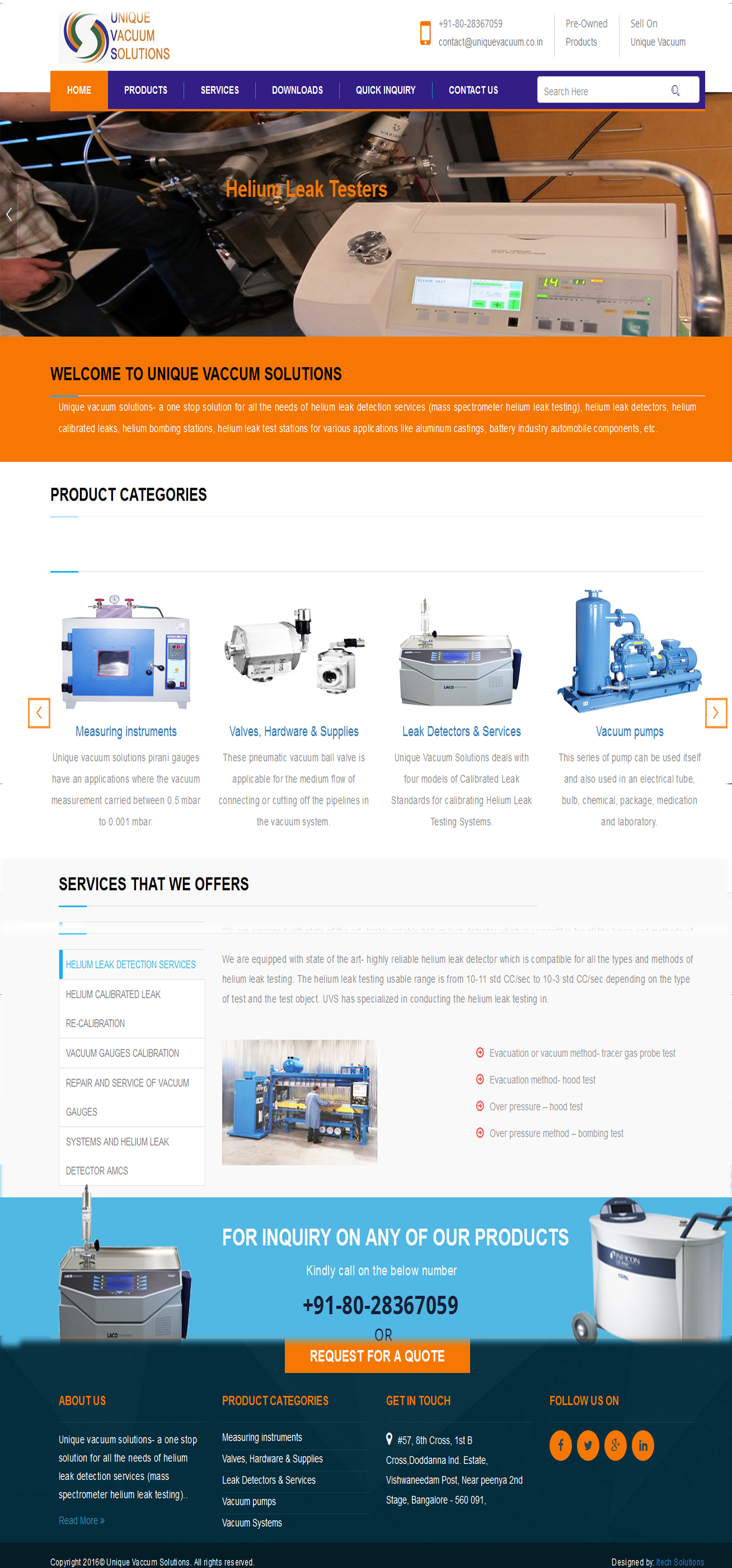 |
 |
|

|
Why Hiring a Web Development Company Is Better Than a Freelancer 
The projects related to website design are high in demand outsourced jobs for a company. Making an online presence with the help of a website is one key point to expanding the company's market. |
The 7 best Window Applications To Increase Your PC Speed 
PC speed is a matter of intense concern for every PC users. Undoubtedly, the new Windows applications like Windows 7 and Windows 8 versions are speedier than the previous version, but as the computer gets older the speed comes down when users need to look for Windows based applications to get back the normal speed of their PCs.
|
|||
|
||||
|
6 soft skills everyone needs and employers look for

In a 2008 survey of more than 2,000 businesses in the state of Washington, employers said entry-level workers in a variety of professions were lacking in several areas, including problem solving, conflict resolution and critical observation. |
The 8 biggest healthcare issues in 2015 so far

Healthcare costs for the average family are going up. Over the past two to four years, something fascinating happened. First, healthcare insurance costs stayed largely the same. This gave some people the illusion that family healthcare costs might be staying flat. |
|||
|
Detailed Articles |
||||
|
Why Hiring a Web Development Company Is Better Than a Freelancer 
Web development sometimes falls to just two types of IT body: a single developer or freelancer and another one is a web development company. Some companies, particularly those with set up businesses give preference to work with companies similar to them. However, smaller companies feel satisfied to work with a freelancer. Strengths and Weaknesses of a Freelancer:People sometimes hire freelancers chiefly due to affordable payment services. Some freelancer's productivity can even challenge those prepared by web design companies in terms of the website's functionality, design, and user-friendliness. However, there are some risks linked with freelance hiring. Depend on experience; some freelancers are incapable to carry the outputs and results they assured with their employer. Common Difficulties with Freelance:Though not all freelance IT employees have these troubles, an important number still confirms these behaviours. One more fault of a freelance web designer is the shortage of a "second view," whenever he is unsure of his ideas and encoding script. Many time, a freelancer left the project half done when they find a better paying project. Strengths and Limitations of a Web Development Company:Web Development Company sometime charges more for a design plan than a freelancer- and for good motives. These companies often have programmers having experience on various programming languages which include PHP, HTML, Jquerry, CSS and Dreamweaver. Sequentially, they could give you with better service and web customization choices as well. Projects with Website development services also take a smaller time to end as more people are associated with the job. Some companies commonly offer web service packages that include everything required for a website to be built and managed. Additional services which includes social media promotions, content management, hosting, and website preservation are just few of the services that may be comprised on the web development project. Article Source |
||||
|
The 7 best Window Applications To Increase Your PC Speed 
PC speed is a matter of intense concern for every PC users. Undoubtedly, the new Windows applications like Windows 7 and Windows 8 versions are speedier than the previous version, but as the computer gets older the speed comes down when users need to look for Windows based applications to get back the normal speed of their PCs. Luckily, in the matter of Android Application Installation Toronto based PC experts provide very authentic and upgraded solutions for their clients. Auslogics BoostSpeed:JThe latest versions of Windows get back their original speed with the help of this popular application. It cleans up the PC to boost its speed, also checks and repairs problems in the internet networks to give higher internet speed. The application is also expert in enhancing PC security and proper maintenance of relevant files for the betterment of PC speed. Boost:It is a free PC speed enhancer that works very effectively just in one click. Boost helps to restore the speed in any PC by removing all types of malwares including irrelevant files, cookies, tracking programs and spyware. PC SpeedBoost:It optimizes the Windows settings and regulates the central processor's workload. The application works with Windows to recover PC's startup time, browsing speed, and overall performance speed. PC SpeedBoost also helps fix the problems that may cause computer crash, screen freeze, and many other problems. Speed up PC 3X Faster:It makes PC run up to three times faster than its present speed. Its popular feature, viz. Windows Optimizer, works very efficiently to increase Operating System speed. There is a feature, which aims to boost available memory. It prevents main memory losses by various processes. JetClean:This popular PC application helps to remove junk files, unneeded registry entries, fix system errors, improve PC performance, and makes PC start up like the original one. SpeedItup:his freely downloadable windows application possesses multiple of advantages for a PC user. It fixes any kind of PC error very fast, cleans up temporary files that make a PC slower, stops irrelevant advertisements comes through the internet, speeds up browsing speed and protects the machine from external threats. My Faster PC:My Faster PC Cleans, and the PC and make it like a new one. Among multiple of features that have made this application so popular among its millions of users include Disk Cleaner, Optimizer, Defragmenter, Browser Add-on Manager, Registry Cleaner, and Startup Program Manager. Thus, the top Windows application software is immensely effective in making the slower computers speedier and sharper like a new machine. For Windows Operating System Installation Toronto based PC users can contact the same experts who provide best guidance for Windows application software. Article Source |
||||
|
Unique Vaccum Solutions 
Itech Solutions has got an opportunity to develop an eCommerce portal for Unique Vacuum Solutions (UVS).
UVS is a reputed Bangalore based company offering one stop solution for all the needs of helium leak detection services (mass spectrometer helium leak testing), helium leak detectors, helium calibrated leaks, helium bombing stations, helium leak test stations for various applications like aluminum castings, battery industry automobile components, et., UVS is having many products like, Measuring Instruments, High Vacuum Valves, Helium Leak Detector,Vacuum pumps & other Vacuum Systems.
The eCommerce solution developed by Itech offers an online medium for UVS to create an additional channel for sales. |
||||
6 soft skills everyone needs and employers look for 
In a 2008 survey of more than 2,000 businesses in the state of Washington, employers said entry-level workers in a variety of professions were lacking in several areas, including problem solving, conflict resolution and critical observation. You'll likely see these "soft skills" popping up in job descriptions, next to demands for technical qualifications. Employment experts agree that tech skills may get you an interview, but these soft skills will get you the job—and help you keep it. Communication skills:This doesn't mean you have to be a brilliant orator or writer. It does mean you have to express yourself well, whether it's writing a coherent memo, persuading others with a presentation or just being able to calmly explain to a team member what you need. Teamwork and collaboration:Employers want employees who play well with others—who can effectively work as part of a team. "That means sometimes being a leader, sometimes being a good follower, monitoring the progress, meeting deadlines and working with others across the organization to achieve a common goal," says Lynne Sarikas, the MBA Career Center Director at Northeastern University. Adaptability:This is especially important for more-seasoned professionals to demonstrate, to counter the (often erroneous) opinion that older workers are too set in their ways. "To succeed in most organizations, you need to have a passion for learning and the ability to continue to grow and stretch your skills to adapt to the changing needs of the organization," Sarikas says. "On your resume, on your cover letter and in your interview, explain the ways you've continued to learn and grow throughout your career." Problem solving:Be prepared for the "how did you solve a problem?" interview question with several examples, advises Ann Spoor, managing director of Cave Creek Partners. "Think of specific examples where you solved a tough business problem or participated in the solution. Be able to explain what you did, how you approached the problem, how you involved others and what the outcome was—in real, measurable results." Critical observation:It's not enough to be able to collect data and manipulate it. You must also be able to analyze and interpret it. What story does the data tell? What questions are raised? Are there different ways to interpret the data? "Instead of handing your boss a spreadsheet, give them a business summary and highlight the key areas for attention, and suggest possible next steps," Sarikas advises. Conflict resolution:The ability to persuade, negotiate and resolve conflicts is crucial if you plan to move up. "You need to have the skill to develop mutually beneficial relationships in the organization so you can influence and persuade people," Sarikas says. "You need to be able to negotiate win-win solutions to serve the best interests of the company and the individuals involved." When it comes to soft skills, show—don't tell:How do you prove you're proficient at, say, critical observation? Demonstrating these soft skills may be more difficult than listing concrete accomplishments like $2 million in sales or a professional certification. But it is possible to persuade hiring managers that you have what they need. To demonstrate communication skills, for example, start with the obvious. Make sure there are no typos in your resume or cover letter. Beyond that, enhance your communication credibility by writing an accomplishment statement on your resume or cover letter, says Cheryl E. Palmer, president of Call to Career. "Instead of stating, 'great oral and written communication skills,' say, 'conducted presentation for C-level executives that persuaded them to open a new line of business that became profitable within eight months.'" Learn soft skills:The good news is that, like any skill, soft skills can be learned. The better news? Boosting your soft skills not only gives you a leg up on a new job or a promotion, but these skills also have obvious applications in all areas of a person's life, both professional and personal. Take a Course: Some colleges are mixing technology with areas such as effective written and verbal communication, teamwork, cultural understanding and psychology. Take a writing or public speaking course to boost your communication skills. Look for a conflict-resolution course or "leadership skills" class at your local community college. Seek Mentors: Be as specific as you can about your target skill, and when you're approaching a potential mentor, compliment that person with a specific example in which you've seen him practice that skill, advises Ed Muzio, the author of Make Work Great. "Then ask whether that person would be willing to share ideas with you about how you might achieve the same level of capability," he says. "Maybe it will grow into a long mentoring relationship, or maybe you'll just pick the person's brain for a few minutes." Volunteer: Working with nonprofit organizations gives you the opportunity to build soft skills. And listing high-profile volunteer work on your resume gives you an excuse to point out what you gained there. For example, "As chair of the environmental committee, planned and carried out a citywide park cleanup campaign. Utilized team-building, decision-making and cooperative skills. Extensive report writing and public speaking." Article Source |
||||
|
The 8 biggest healthcare issues in 2015 so far 
Healthcare costs for the average family are going up:
Over the past two to four years, something fascinating happened. First, healthcare insurance costs stayed largely the same. This gave some people the illusion that family healthcare costs might be staying flat. In reality, the consumer portion of costs went up very substantially. Consolidation continues at a fairly rapid pace; will regional systems consolidate; will payers consolidate:It has become increasingly clear that rural hospitals and independent hospitals may have a very hard time surviving in the future. Thus, more and more of those are looking to align with bigger systems. And on the other hand, bigger systems are eagerly searching for hospitals that can expand their market reach. A fascinating issue will be whether the regional systems, and there are increasingly great regional systems in the country, (see "50 Great Health Systems" at Becker's Hospital Review), will start to align with each other. These types of deals, often referred to as "mergers of equals," can be transformative for organizations and their markets. A second fascinating issue has emerged this past month. Here, it seems as if a merger frenzy or bubble is heating up among the big five insurers as (1) Humana puts itself in play, and (2) Anthem and United make bids for Cigna and Aetna and vice versa. State budgets, whether states picked up Medicaid expansion or not, are being shellacked:
State budgets are now in trouble on two different fronts. They are, in many states, overwhelmed by the cost of pension and healthcare responsibilities to former state government employees. Paul Volcker, the former chairman of the Federal Reserve, recently issued a report that said neither Democrats nor Republicans can claim to have superior budgeting practices at this point. He criticized states for kicking the can down the road, living beyond their means year after year in a "never-ending sense of crisis" that results in "stop-and-go funding of vital programs," such as those for infrastructure, education, pensions and city and county services. As 45 states prepare their budgets for the fiscal year beginning July 1, many are facing significant shortfalls and calling for special legislative sessions. A survey by Associated Press reporters found 22 states were projecting shortfalls for the coming fiscal year, with Illinois leading the way with the largest budget gap. Healthcare exchange enrollments see fewer sign-ups than expected; King v. Burwell adds another element of uncertainty:
To bolster enrollment numbers, the government provided subsidies to people in states that did not add their own healthcare exchanges, even though the law seems to have said something different.
Supporters of the healthcare law point to the amount of people enrolled through healthcare exchanges under the healthcare law. Earlier this month, HHS announced 10.2 million people purchased coverage during the most recent enrollment period. The PPACA has a few great points; note, however the balance between taxes and the costs of government versus the increased coverage remains unclear:
There are a couple great points in the healthcare law that should not at any cost be repealed. In essence, the ability for people to obtain coverage even if they have preexisting conditions and other certain other concepts are critically important. However, the total billions of dollars spent by the government and the increase in taxes that comes with it compared to the benefits of the healthcare law thus far seem out of balance. In essence, the costs seem high and the benefits may be low.
The impacts of these changes can have an overriding effect on the American economy. The increased taxes plus increased insurance costs mean a double hit to American incomes. In 2014, the percentage of money consumers spent on healthcare rose to a record high of 20.6 percent. Epic seems to be taking over the world:
Each day, we read about a different contract between a provider and Verona, Wis.-based Epic Systems, the largest provider of EMR services in the country. The company recently signed a $1.2 billion contract with Boston-based Partners HealthCare, making it the academic health system's biggest single investment to date. The antitrust case against Blue Cross Blue Shield is one to watch:
It was recently reported that the Blue Cross Blue Shield Association and all 37 of its independently owned companies were sued in suits advancing in a federal court in Alabama. The court consolidated claims into two plaintiff classes. PPACA has not provided the benefits for nonprofit hospitals as expected:Many nonprofit hospitals, particularly systems, continue to perform pretty well. There was, however, a very interesting statement within a recent Moody's report that clarified how the new health law has not been a tremendous boon for these hospitals. Article Source |
||||

